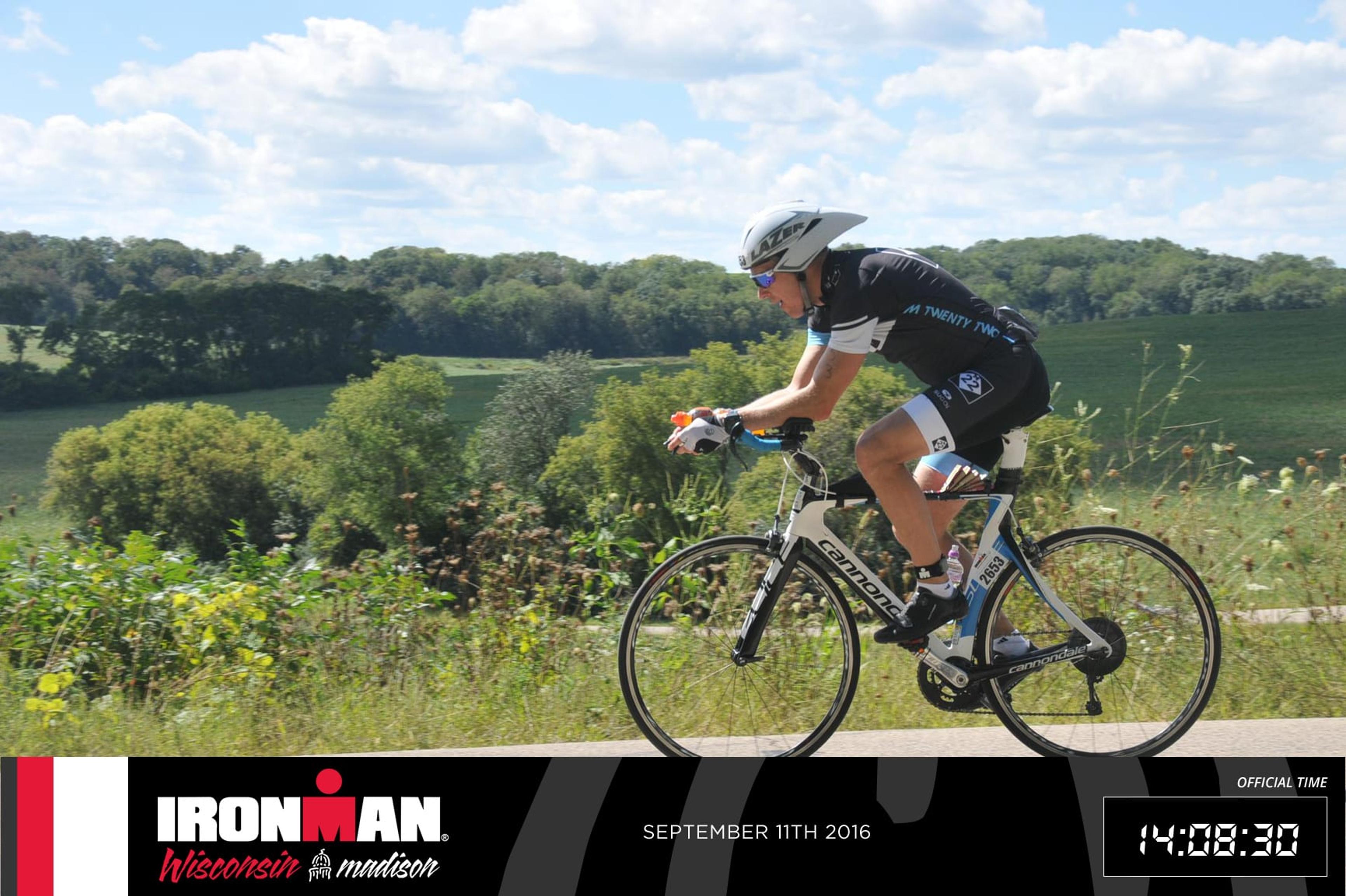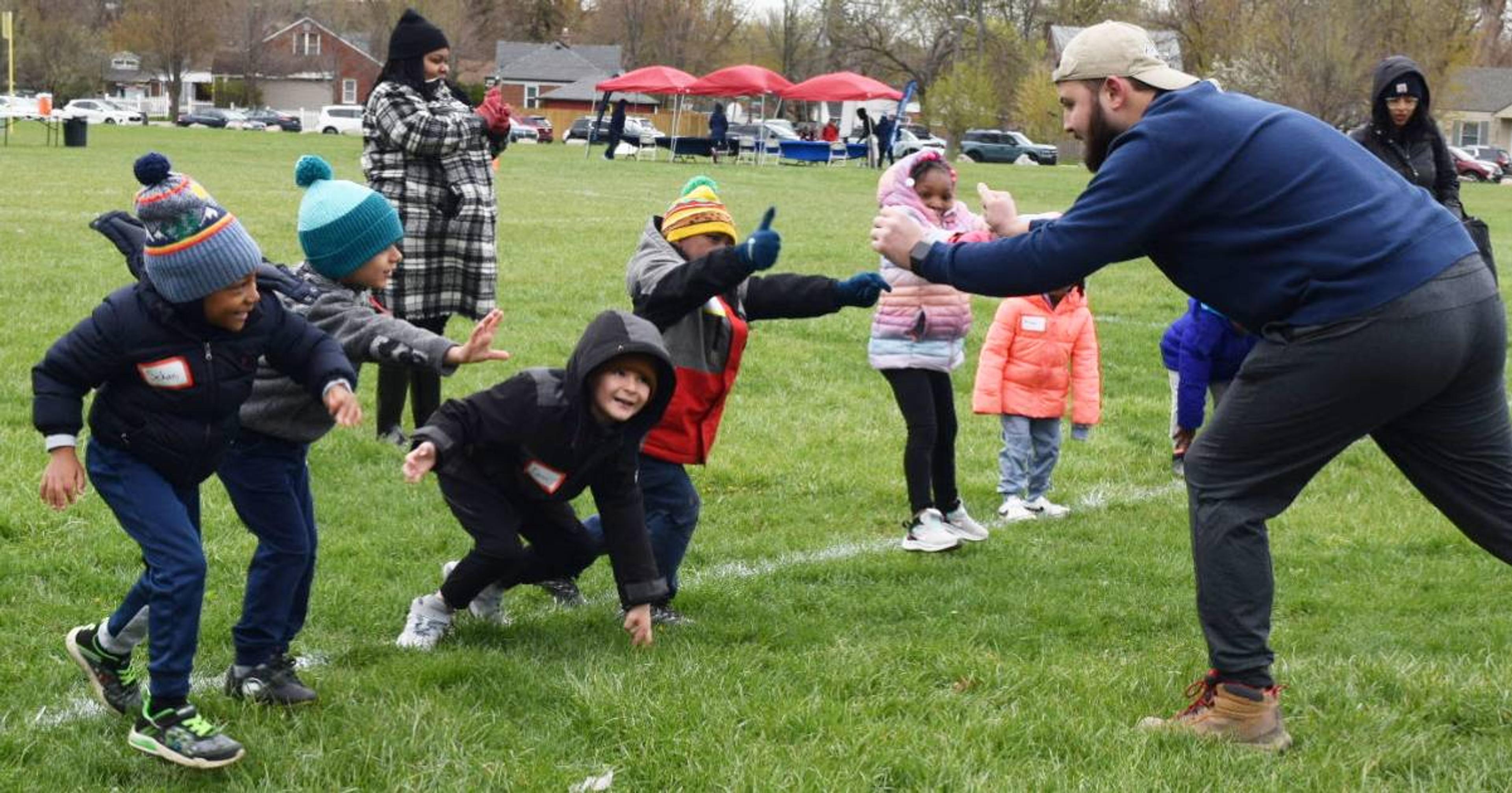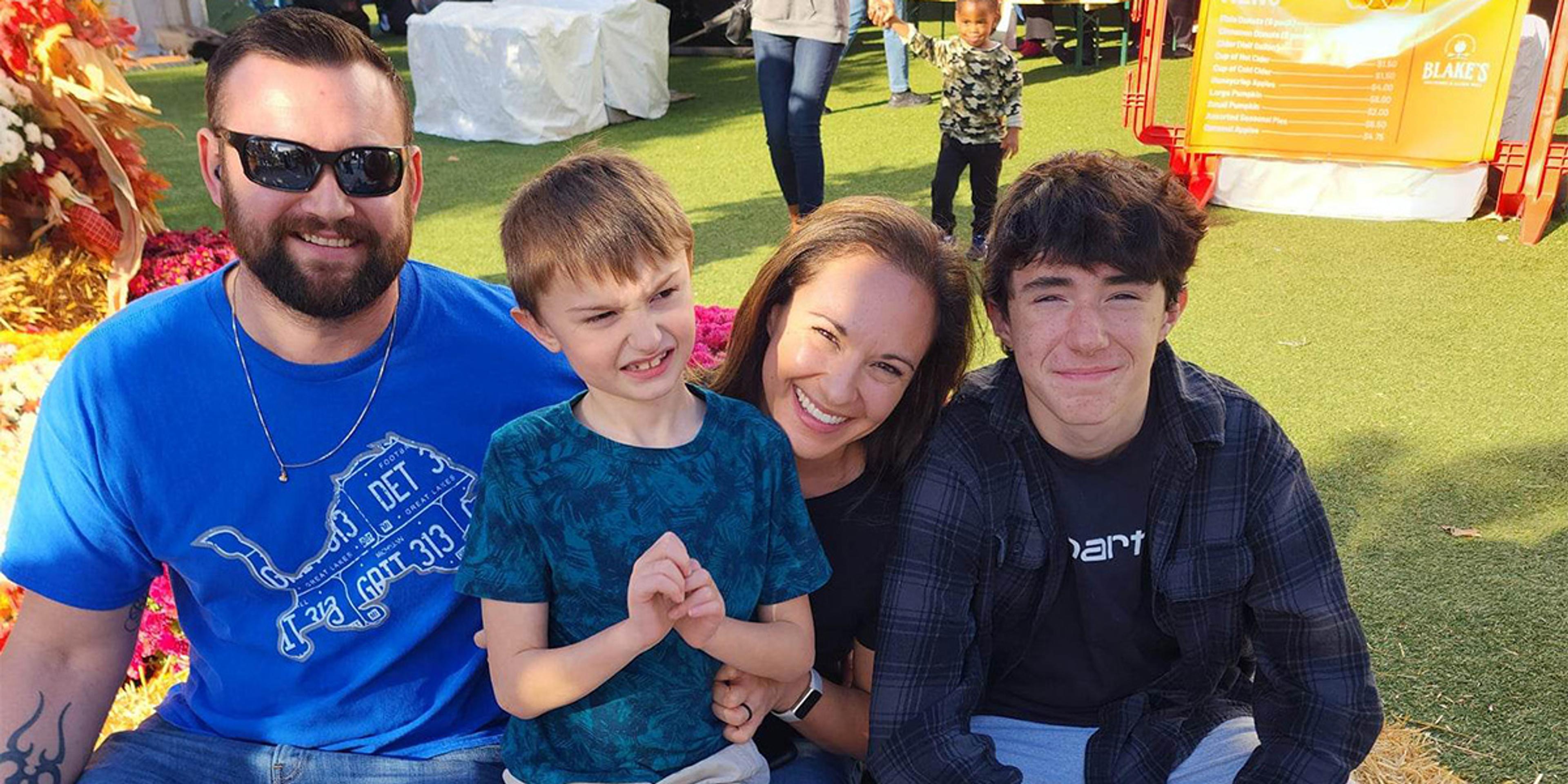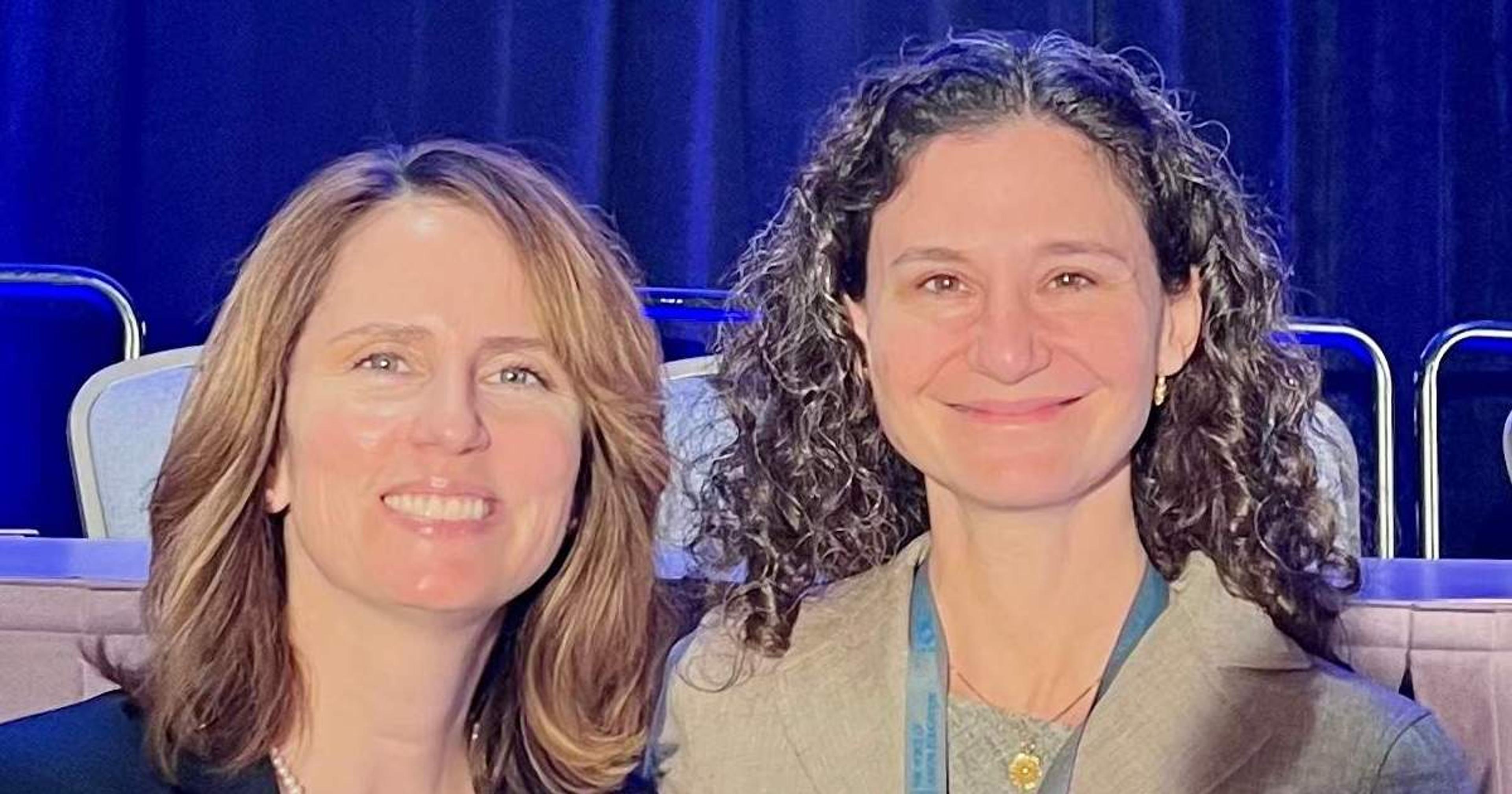Employee Spotlight: Blue Cross VP Takes on 2nd Ironman Triathlon
Sven Gustafson
| 6 min read

When Blue Cross Blue Shield of Michigan’s Vice President of Finance and Chief Risk Officer Paul Mozak isn’t managing the company’s investment portfolio, diving into capital planning or running numbers, you might find him swimming laps at the local YMCA or running around Hines Park. Mozak recently completed his second Ironman Triathlon in Madison, Wisconsin and placed in the top half of his age group. Here, he talks with us about his experience and the rigors of Ironman training. MBP: What made you want to do an Ironman in the first place? I did my first triathlon five years ago. It was a sprint, which is a much shorter one, but I just really enjoyed that. So, I kept moving up in the distances over the course of years, training a little harder, a little more each year. Eventually, I did a half Ironman, I’ve done five now, and then I decided I wanted to take the leap and give it a shot. The first one was two years ago. The Ironman is one day, but you really have to train about nine months for it. So people ask me, how long have you been training for the Ironman? In some ways, five years, because it really is about changing your life. And it’s about the dedication to the training, to your team, being honest to your training schedule and your coaches, and the commitment that it really takes to make that one day happen is really what it’s all about rather than that one day. MBP: The triathlon is a unique event in that it has three different sports: bicycling, running and swimming. How do you balance all of that in training? Are you doing all three in any given day? Typically not. That’s what makes the event so challenging. When you step to the starting line, you’re really sure you can swim the full distance, bike the full distance and run the full distance, but you’ve never done all three on one day. So putting it all together is really the challenge. Typically, what you do is, you train six or seven days a week. I tended to take Monday off, and you would swim two days a week, and bike and run, sometimes both on the same day, then rest. So it’s a pretty busy schedule. It requires you to get up early all the time. MBP: I bet. You’re the vice president of Finance, a busy guy. How’d you fit it into your schedule? You end up cutting out a lot of things that you really don’t need to do. A lot of TV gets cut out, and you end up going to bed early. Typically, you’re up at 4:30 a.m. or 5:00 a.m., and downtown working out at 5:30 a.m. or 6:00 a.m. You get to work by 8 a.m. MBP: Tell me about the race. How did you do and how did you feel about your performance? So, Madison’s a great town. I got there a couple of days early, took the ferry across Lake Michigan. And then you got a chance to get in a car and actually drive the bike course, which is pretty revealing because you’re not sure what you’re getting into until you’re there, and it’s a lot different to see a graph of it than to actually see the course. So, the swim is 2.4 miles and it’s in a lake in downtown Madison, right in the shadow of the capitol It’s a very challenging swim since there’s about 2,900 people that were in the race, and they all start at once. So it’s sort of like a rugby scrum more than a swim. MBP: Like a water polo match. Yeah, a lot of punching and kicking going on for at least half of it until you get cleared out. Once you get out of the water, you feel like you’ve accomplished a lot for the day. Even though it’s the shortest piece, just getting out of that water and catching your breath is really a big thing. So, I was really successful with the swim. The bike course is 112 miles, which is a long way. It’s two loops around the countryside of Madison, and actually it’s a lot hillier than you would ever think. There’s a lot of hills and a lot of turns. It’s actually one of the more challenging courses in North America. It took a lot out of me. And then on the run, it’s a 26-mile loop. MBP: And then you start a marathon. You start a marathon, yeah. You’re already a good six to eight hours into your day and you start the marathon. It’s all through the Madison area. The streets are lined with people. MBP: I’d imagine you’re drawing a lot of energy from the crowd. The energy from the crowd is great. The amazing thing is when you get to that last mile, even though you’re dead tired, it’s amazing how much energy you find to get you through that last mile. MBP: Did you have moments where you just thought, I’m so exhausted I can’t go on? There’s always dark moments in the race. For me, one came on the swim. It was in sight of the finish line and I got a very severe charley horse. So I literally had to turn over on my back and stretch it out for about five minutes before I could continue swimming. That was a pretty dark time, like how am I going to get through this if I can’t even finish the swim? But I was able to do that and that was good. The run, everybody has dark moments somewhere between mile 16 and the end, when you hit that wall. But when you hit it in this event, it’s after all that other work that you’ve already done, and the wall can crush you. So, you really just have to remember, I‘ve trained for this, I can do it, and you push through it. At that point it becomes more mental than physical. You trust your training and it’s mind over body. MBP: Do you have any more Ironmans in you? Are you going to keep doing these? I’m going to keep doing this kind of thing. I’ll keep doing triathlons. Honestly, I don’t think I’ll do another full Ironman. The amount of training and time it takes is just too big given everything else I have going on in my life. What I normally do is I reassess my goals when I get to around the end of the year. I haven’t finalized that yet but I think coming back to the Free Press marathon is probably on that list. It’s a little bit easier. I’m done for this year, just want to rest the body, take it easy. But I’ll keep training and working out with a group and I love doing events.





